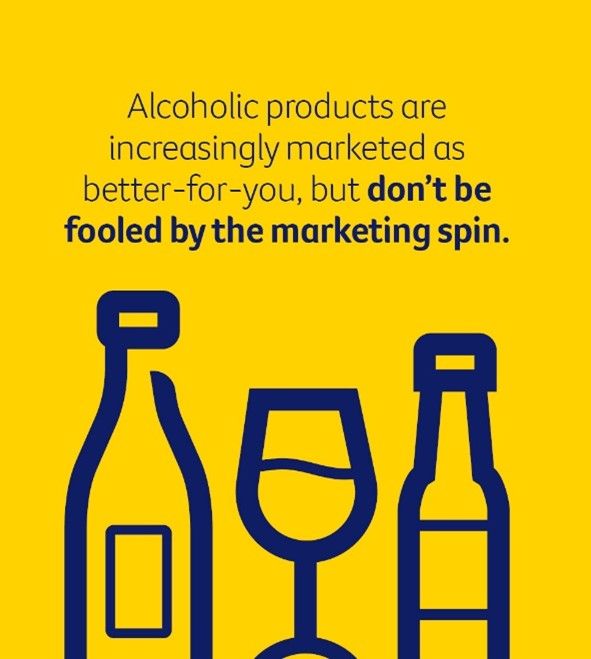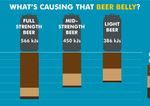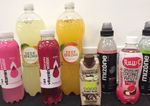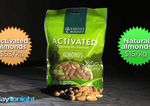The research is in: ‘better-for-you’ alcohol is just marketing spin
by Gael Myers, Accredited Practising Dietitian, Danica Keric, Alcohol Policy and Research Coordinator
- November 17, 2021
- Leave a comment
When an alcohol product claims to be low in sugar or carbs, organic, natural, or that it has nothing artificial, is it actually any better for us? The alcohol industry would certainly like us to believe so, but our new research published in the Health Promotion Journal of Australia tells a different story.
A wolf in sheep’s clothing
The research has revealed that alcohol companies are trying to create a health halo around products that are fundamentally unhealthy. In new product announcements over the past couple of years, alcohol companies have used claims about ingredients or health to market what they call ‘better-for-you’ alcohol products. But they haven’t addressed the main ingredient of concern in these products – the alcohol content. Of the 144 alcoholic products promoted as better-for-you that were included in the study, 85% had full-strength alcohol content, and most products (62%) derived at least 75% of their kilojoules from alcohol.
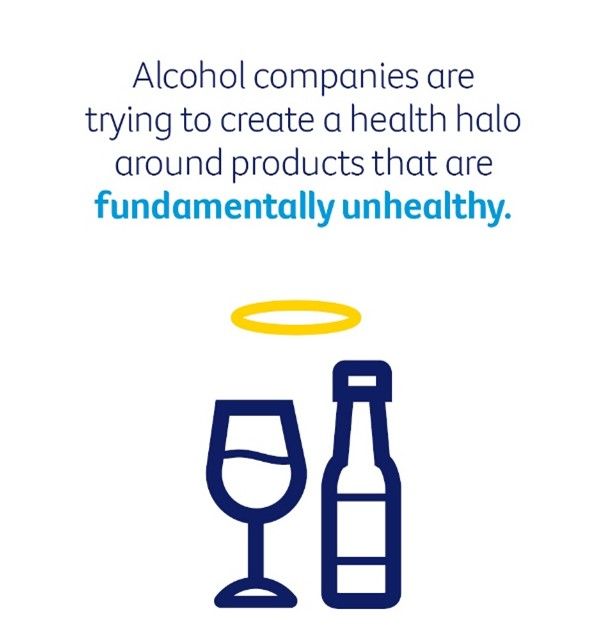
While the majority of products were classified as low sugar (82%) and low carbohydrate (88%) … this is also true for many standard alcohol products, including beer! Advertising beer, wine, and spirits as ‘low sugar’ or ‘low carb’ is like sticking a big ‘fat-free’ sticker on a packet of lollies. It’s technically true, but the aim of promoting it is to try and distract you away from other, less desirable, attributes of the product.
We have long known that in alcoholic products, it’s the alcohol itself that causes a range of long-term diseases, including cancer, and that contributes to the product’s high kilojoule load. And this research shows that the ingredient of most health concern in standard alcoholic products – alcohol – is also the major health concern in alcoholic products promoted as better-for-you.
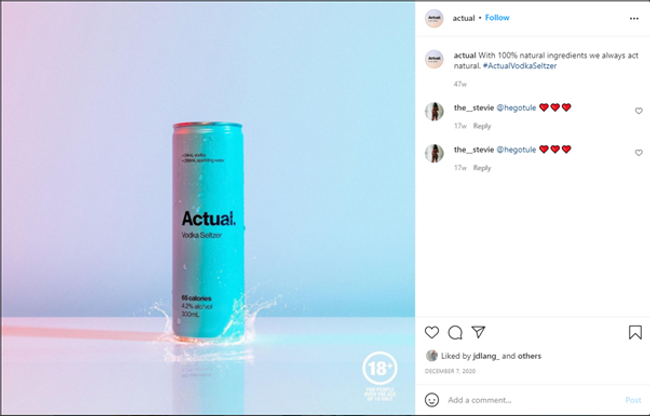
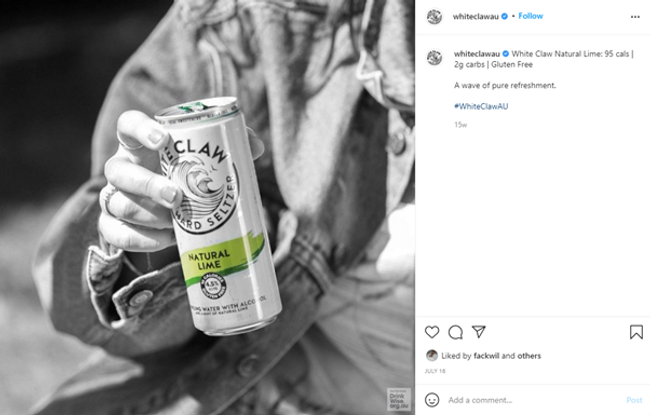
Targeting the ‘pink’ dollar
There is evidence that some alcohol companies specifically target women with supposedly better-for-you alcohol products. Back in 2019 we looked at how alcohol is marketed to women and found that alcoholic products designed to appeal to women were often promoted using health-related claims such as low sugar, low calorie, and natural ingredients. As just one example, a brand posted an image of women drinking at an outdoor lunch with the caption “Our classic Strawberry-Lime Cider comes in low sugar, so you can sip guilt-free.” This is especially concerning as alcohol is a known cause of breast cancer.
Shining a light on health halos
Why should we be concerned about health halos in alcohol marketing? Research shows that when we’re exposed to products with health-related claims we view the products as healthier than those without claims. It’s completely reasonable that a product claiming to be “health conscious”, “natural” or “containing nothing artificial” would appear healthier than other products. And people who drink alcohol may drink more of a product if they believe it to be healthier.
Given that alcoholic products promoted as better-for-you are not genuinely healthier, it’s worth considering how a product that’s known to cause disease can be promoted as “ticking all the health boxes” or being “guilt-free”. In Australia, the alcohol and advertising industries have designed their own marketing codes, and these codes are too weak and too narrow to restrict health claims in alcohol ads. To see a change, we need the Australian Government to step up and set higher standards so alcohol companies can no longer use health-related claims to give alcohol products a health halo.
What can you do about this? Be aware of the marketing spin. Organic, natural, low-carb and low-sugar alcohol is just as damaging to your body as other alcohol products. The best action you can take to reduce your risk of alcohol-caused disease, including cancer, is to reduce how much alcohol you drink. Reducing how much and how often you drink, or choosing products with low-alcohol content, rather than claims about other ingredients, is what will really make a difference.
